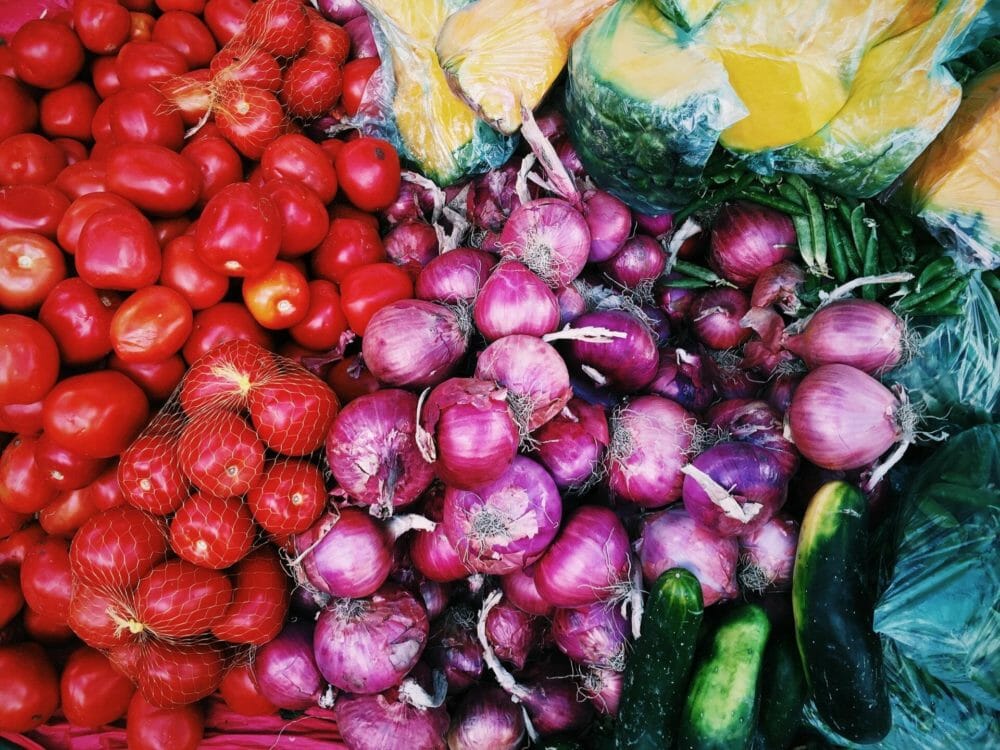Editor’s note: Tanmay Bhargava is head of Asia Pacific at Intello Labs. Based in Gurugram, India, Intello Labs uses machine learning tech to grade the quality of agricultural produce. Intello Labs is a member of the first cohort of GROW, AgFunder’s Asia agrifoodtech accelerator. AgFunder is the parent company of AFN. Read more about the technology here.
Covid-19 has wreaked havoc on businesses around the world. That’s more than obvious. How are fresh produce businesses coping?
At Intello Labs, we digitize quality across fresh produce supply chains through image matching and machine learning – so we have deep connections within the fresh produce industry.
We spoke to three industry leaders to get a global picture of the pandemic’s effect on the sector.
- Vivek Dhume, head of the North America fruit and vegetable business at Future Group – an Mumbai-based conglomerate – shares his perspectives on the US situation.
- Karthik Jayaraman, founder and CEO of Waycool – a B2B food distribution platform – talks about the situation in India.
- Tony Mahoney, CEO of RipePlanet – a farming-focused organisation investing across the agriculture value chain – shares his experience with businesses in Australia.
What has been the business impact of Covid-19?
Vivek Dhume (VD): It is early days yet to quantify the effect of the pandemic, but demand is at the peak in North America. People are still stocking up. It’s the after-effect of Covid-19, primarily indirect, that’s going to be scary. As more people lose jobs, only essential items will be in demand. Expect a sharp decline in speciality products.
Karthik Jayaraman (KJ): HORECA [hotels, restaurants, and caterers] are entirely shut down. Since all shopping malls are closed, 50-75% of small general trade shops are shut, and supermarkets are working on minimal operations. The retail volume has lessened.
Tony Mahoney (TM): The last three or four weeks have been unusual, to say the least. Because [RipePlanet’s] collective of organizations is varied, each has been hit differently. Because we encouraged businesses to develop contingency plans, some have experienced unexpected growth.
There has been an unusual spike in sales of fresh produce and a dramatic shift from providores sales to majority retail sales. Our view is, it’s because more individuals are consuming healthy and home-cooked meals, and people are panic buying. The latter is detrimental as replenishing store shelves is not easy currently, due to a choked-up supply chain.
Do you see a shift in consumer behaviour? What new trends do you see emerging?
KJ: The apparent change is more food purchases and consumption [done] at home, But I also see some shift in demand. [Indian] Tier 1 cities will see a decline, while demand in Tier 2 cities will soar because more [migrant workers] have gone back to their home bases.
VD: Right now, e-commerce is recording growth, but that’s temporary. It’s the brick-and-mortar businesses that will continue to play an exigent role. I also expect retail and food services to bounce back if they take steps to build consumer confidence by alleviating food safety concerns, like how and where are they buying from.
What repercussions are different stakeholders like farmers, traders, food processors, and retailers experiencing?
KJ: The issue is not supply; it’s the supply chain. Because there are no explicit regulatory guidelines, each stakeholder is bearing the brunt. For farmers, the biggest fear is the absence of harvest will spoil the standing crop. Another is produce being sold at a loss, or worse, dumped.

VD: Labour is going to become a big issue. With people migrating, we don’t know how bad the next harvest could be and that will have an impact on all the stakeholders.
TM: The food services sector has diminished dramatically. Yet, it has been inspirational to watch how many of these organisations have transformed their business models, almost overnight, whether it be by moving to home delivery or producing sanitizers.
Our organisations that work within the supply chains have felt an impact. They have had to work extra hard to supply fresh products safely. To eradicate risk, they are meticulous about where they choose to source products and to work overtime to keep an eye on how products are being handled at every step.
We’ve even noticed throughput suffer on our borders in one of our entities that delivers quarantine approved logistics and biosecurity services for importers and exporters, with a focus on fresh produce. The increased freight prices have meant that throughput volumes have significantly dropped. They’ve had to change their work practices to ramp up usage of protective equipment, adjust workflows to reduce handling and introduce split shifts as a contingency.
The extreme and volatile droughts and fires last year made it exceptionally tough for Australian growers. Further, we are noticing farmers continue to struggle to get access to the funds that they need for growing new crops. All of this hurts the ability to supply much-needed food. Exporters seem to be in a challenging position, too, with very little air freight space and tight sea freight.
What is the doomsday projection, or worst-case scenario, in your mind, from an overall agribusiness perspective?
VD: How long this will last, is anybody’s guess. But from a consumer perspective, purchasing power will come down. People will buy only the basics. From a business perspective, things will turn around for the food industry. That said, how many businesses will be able to sustain themselves for the next 3 or 6 months is a big conundrum.
TM: Australia is luckier by design. It’s a net exporter of food. If we ensure continued funds to farmers and seamless supply chain, then food will remain available to people in Australia.

But we already know that farmers are operating lean. Taking further costs out of their businesses will be tough. They will also likely find it difficult, or at least very expensive, to purchase various input products such as the nutrition they introduce to their soils.
My view is that many will understand the necessity of sustainable and regenerative farming techniques to survive. A lot of farmers have already felt the pressure to move towards more innovative growing models, and the impact of Covid-19 may just take the choice altogether.
When that day comes, I hope that we all are collectively bold and step up to the challenge of connecting our farmers to the capital that they will need to achieve the transformation.
KJ: Purchase patterns may turn volatile if the lockdown extends or becomes intermittent, but I am not worried about a lasting impact, purely in terms of business volume or value.
Do you see panic among B2B customers akin to that seen in the end consumer?
TM: Perhaps not panic, but marketing agents are feeling particularly distressed, especially those where air exports accounted for much of their business. They fear that their business will cease to exist if this situation continues much longer. The current environment does require an adjustment, but the question is, how will it look when normality returns?
Your employees will be worried about their safety and their futures. What steps are you taking to ensure their safety? How are you inspiring them to continue giving their best shot?
VD: Constant communication helps ease nerves. For the protection of those who are ensuring that masses get their daily food needs, we’ve provided PPE. More than that, we have medical professionals regularly visit our offices and guide our people.

KJ: It’s about building confidence and communicating that we need to be together during this difficult time. We’re practising work from home, where possible. To all others, we’ve given access to health kits and protective equipment.
TM: We decided to work remotely quite early on, and because we are relatively digital, the transition was smooth. But we did roll-out certain interventions for physical, financial and mental well-being.
All our essential workers have personal protective equipment to mitigate any health risks. Our leadership has taken significant salary cuts to protect financial health. We’re now kicking-off weekly team video chats, where work is off the agenda and using a ‘buddy’ system to make sure that we are checking in on each other and have someone to reach out to at any time.
We’re also negotiating rental agreements with our landlord that work for both our benefits. We’ve even delayed interest payment owed to us, to support other entities.
Read more abut Intello Labs, an AI-powered platform for analyzing the quality of fresh produce, here.
But to reduce costs and the impact on business, we also had to make some painful choices and big sacrifices like pushing back great investment opportunities or significantly reducing our planned outflows.
One example is the fruit and vegetable farm with protected horticulture, glasshouses, and vertical farming we were developing one hour north of Sydney. The organic farm based on agroecology principles has now become dormant because we redirect funds towards a “safety net”.
What’s one piece of advice you would give to startups in this space?

KJ: The future is nebulous, no one knows whether things will stabilise in quarter 1, 2 or 3. So, I recommend the same strategy we have taken. Build four scenarios ranging from ‘optimistic’ to ‘doomsday.’ Closely monitor the situation and make rapid decisions when the time comes.
VD: Presently, it’s the time to maintain your trust in the right people. Once the circumstances are back to normal, you’ll be in a position to grow.





